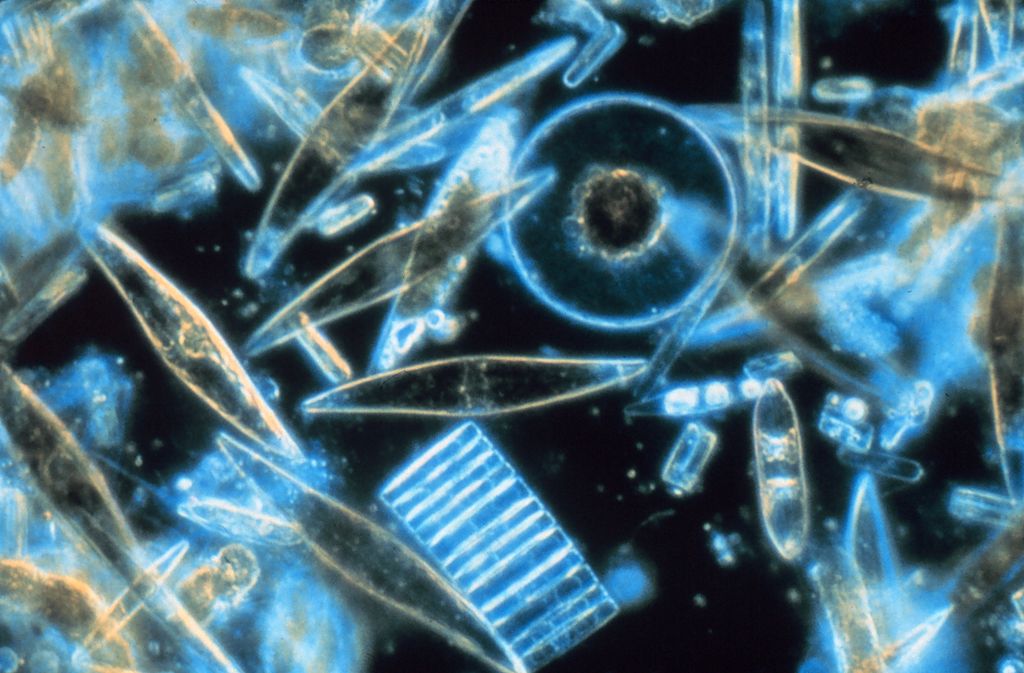
Recently, we looked at the claim that diatoms (one-celled algae with glassy shells) demonstrate the ability to make choices. That seems hard to account for in the absence of a brain (though the researchers were convinced they saw it happen).
Our physics color commentator Rob Sheldon writes to clarify a point about the diatoms:
The article was a bit misleading on the use of “sex,” suggesting that diatoms had to chose between food and sex. So here’s some info about diatom replication.
The most common or normal way a diatom multiplies is by asexual binary division. Only the outside of a diatom is made of glass, or more precisely two pieces of glass like a pill box, or two petri dishes of slightly different diameter.
When the diatom divides asexually, each daughter gets one pill box cover. Most importantly, it makes a new “lid” by constructing a slightly smaller petri dish. If we draw a binary tree diagram that includes all the descendants, you will see that the descendant who inherits the oldest “top” petri dish, is still the same size as her original clone. But the poor schlub who always inherits the smaller “bottom” petri dish is now very small indeed.
Because diatoms also die and are removed from the binary tree, the average size of a diatom population gets smaller over time. It is the shrinking accommodations that force the diatom to engage in “sex.” This involves forming gametes inside the glass, shedding the glass, merging two gametes (which may or may not be the same size) and hatching two full-sized diatoms to start the cycle anew.
Whether or not we apply multicellular and metazoan attitudes about procreation to single-celled diatoms, it does show that memory persists between generations, which is hard to explain without design.
The original account read
The algae depend on nutrients in order to reproduce. However, they also need sexual mates which they find when they follow pheromone traces. In experiments, Seminavis robusta diatoms directed their orientation either towards nutrient sources or mating partners, depending on the degree of starvation and the need to mate. The tiny organisms demonstrated in fact a primitive form of behavioral biology. More.
So it seems the diatoms must “remember” to try sex when they are becoming unviably small.
![The Long Ascent: Genesis 1â 11 in Science & Myth, Volume 1 by [Sheldon, Robert]](https://images-na.ssl-images-amazon.com/images/I/51G-veeEcdL.jpg) Rob Sheldon is author of Genesis: The Long Ascent
Rob Sheldon is author of Genesis: The Long Ascent
Follow UD News at Twitter!
See also: Researchers: Diatoms demonstrate “behavioral biology.” One can assume that all these organisms and parts thereof are individually intelligent or that there is a mind underlying nature.